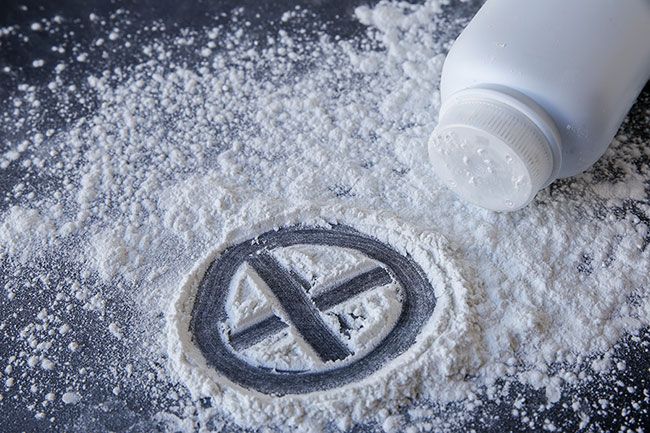The skin is our body's largest organ, and the first line of defence against dehydration, invasion from viruses, bacteria and pollutants. Looking after it as it grows is an important part of staying healthy and baby and children's skin needs extra special care, particularly if it's prone to sensitivity and eczema. Here, skin care expert and founder of Childs Farm, Joanna Jensen shares her top tips for dealing with sensitive skin.
Moisturise
Parents often avoid putting anything on their children's skin if they are prone to sensitivity for fear of it flaring up, but children's skin needs moisture. Young skin contains more water than an adult's but also loses it more quickly, so keeping it well moisturised is essential to prevent it drying out and cracking. Feeding the skin from within by keeping your child well hydrated is a great place to start and this should be combined with moisturising with a good-quality natural cream.
Say no to talc
Talc is often used on babies' bottoms to soak up the moisture from wet nappies, so that they don't irritate the skin, but it can be a nightmare for sensitive skin. First and foremost, talcum powder takes moisture away from the skin. It soaks up the moisture, making nappy rash and sensitivity much worse. If your baby's bottom is sore from nappy rash, it's better to ditch the powder, keep the nappy area clean and dry, and use creams instead.
Avoid nasties
You'll be amazed at the host of nasties lurking in toiletries aimed at babies and children. Skin care expert Joanna Jensen strongly believes all parabens and SLSs should be avoided. But, particularly for sensitive skin, you also need to think about choosing products that don't contain mineral oils. Mineral oils are a common ingredient in baby lotions, cold creams and ointments, but they're also a by product of the distillation of petroleum. Liquid paraffin and white soft paraffin are included in many barrier creams for treating eczema. But their side effects include itching, dry skin, redness, rashes, and dermatitis. Instead look for products that contain natural essential oils like sweet orange, peppermint and tea tree, that are totally natural and known for their soothing, antibacterial properties.
Don't neglect your child's scalp
If your child has sensitive skin it's important to remember that they may also have an itchy and irritated scalp. Gaining popularity among adults for its soothing benefits on irritated and blemished skin, Salicylic acid can make a big difference to sensitive scalps. Childs Farm have successfully managed to weave the ingredient into a shampoo for children. The Salicylic acid gently exfoliates dry flaky skin, then soothes and calms it. It works to remove loose and dead outer layers of the skin, getting rid of unsightly dandruff and relieving the pain and inflammation of sensitive skin.









